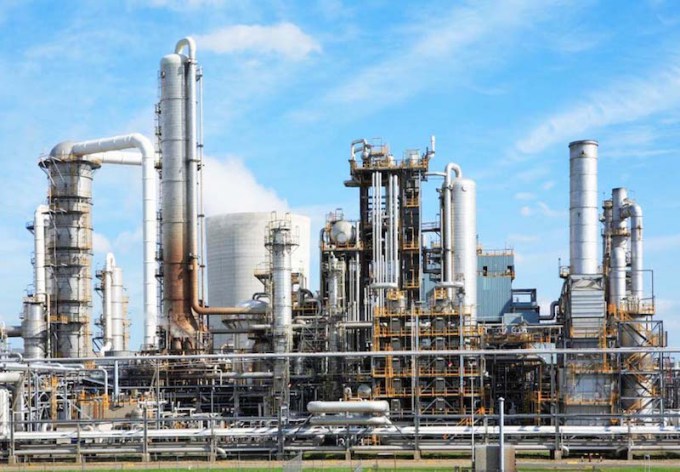A study commissioned by the Nigerian Natural Resource Charter (NNRC) and conducted by the Centre for Petroleum, Energy Economics and Law (CPEEL), University of Ibadan on the contributions of the four refineries owned and operated by the Nigerian National Petroleum Corporation (NNPC) to Nigeria’s Gross Domestic Product (GDP) has showed that their average contribution was just about 0.55 per cent as at 2016.
The study also stated that the contribution of the refineries to the GDP of other sectors of the Nigerian economy as at that time was 0.18 per cent, in addition to a -1.69 per cent contribution of the refineries to the gross net output in the country’s economy.
Report of the study was presented at a stakeholders’ workshop on ‘assessing petroleum sector wealth: NNPC’s contributions to the economy,’ recently in Lagos.
It focused on the contribution that NNPC refineries and pipelines have made to the Nigerian economy in 2016. Its estimations were done along the lines of direct contributions; indirect contributions and induced contributions, as well as their contributions with respect to Gross Domestic Product (GDP); Gross Net Domestic Product (GNDP); value-added; indirect taxes; compensation in terms of wages and salaries for employees; as well as employment.
X
THISDAY Newspapers
News
GET – On the Play Store
View
Sign in
HomeBusinessPoliticsNigeriaHealth & WellbeingEducationLife & StyleSportEditorialBackpage
SIGN IN
Welcome!Log into your account
your username
your password
Forgot your password?
PASSWORD RECOVERY
Recover your password
your email
Home Business
NNPC’s Refineries Contributed Only 0.55% to Nigeria’s GDP in 2016, Says Report
A study commissioned by the Nigerian Natural Resource Charter (NNRC) and conducted by the Centre for Petroleum, Energy Economics and Law (CPEEL), University of Ibadan on the contributions of the four refineries owned and operated by the Nigerian National Petroleum Corporation (NNPC) to Nigeria’s Gross Domestic Product (GDP) has showed that their average contribution was just about 0.55 per cent as at 2016.
The study also stated that the contribution of the refineries to the GDP of other sectors of the Nigerian economy as at that time was 0.18 per cent, in addition to a -1.69 per cent contribution of the refineries to the gross net output in the country’s economy.
Report of the study was presented at a stakeholders’ workshop on ‘assessing petroleum sector wealth: NNPC’s contributions to the economy,’ recently in Lagos.
It focused on the contribution that NNPC refineries and pipelines have made to the Nigerian economy in 2016. Its estimations were done along the lines of direct contributions; indirect contributions and induced contributions, as well as their contributions with respect to Gross Domestic Product (GDP); Gross Net Domestic Product (GNDP); value-added; indirect taxes; compensation in terms of wages and salaries for employees; as well as employment.
The report noted that its assessment of value-added was made up of wages and salaries; operating surplus and depreciation, while indirect taxes included value added tax (VAT); excise and custom duties.
According to it, the refineries contribution to value added in the economy was 0.35 per cent; contribution to indirect taxes in the economy was 0.19 per cent; contribution to compensation of employees in the economy was 0.13 per cent; while NNPC refineries & pipelines’ contribution to employment in the economy was 0.05 per cent.
“The small contribution of NNPC refineries and pipelines across measures can be related to the sector’s low capacity utilisation – 18 per cent for quite some time now. This has led to an unprecedentedly high importation of its products at the expense of the economy as every item of import is a leakage in the system. The importation is making negative contribution to the economy,” said the report.
It added: “The sector has also been running at a huge loss thereby reducing its contribution to the economy. There is a need for concerted efforts to promote accountability in the management and turn-around-maintenance of the refineries.
“The existing refineries and pipelines at full capacities appear inadequate to fully satisfy domestic demand for petroleum products as a rigorous CGE modelling exercise reveals.”




